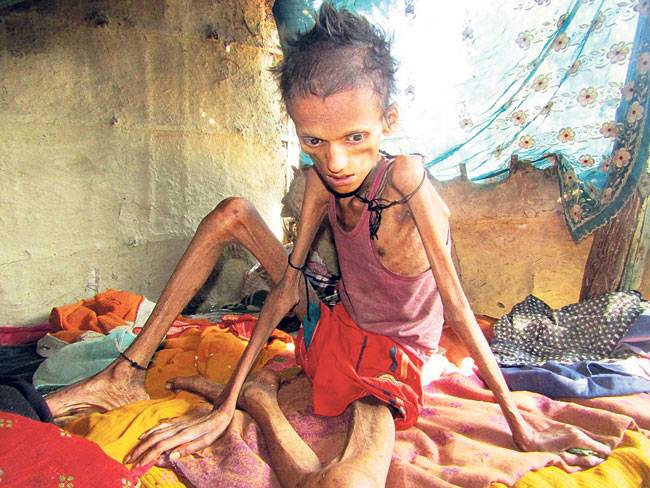Malnutrition refers to a condition where there is a deficiency or imbalance in the intake of nutrients necessary for the body's growth, development, and functioning. Here are some effects of malnutrition:
1. Impaired physical growth: Malnutrition can lead to stunted growth and development, particularly in children. It can cause both short-term and long-term effects on their height, weight, and overall physical development.
2. Weak immune system: Inadequate nutrition weakens the immune system, making individuals more susceptible to infections, diseases, and other health problems. This can result in frequent illnesses and slower recovery.
3. Cognitive and mental health issues: Malnutrition can negatively impact brain development, leading to cognitive impairments, learning difficulties, and decreased academic performance. It can also contribute to mental health issues such as depression, anxiety, and behavioral problems.
4. Fatigue and weakness: Lack of energy-providing nutrients like carbohydrates can lead to chronic fatigue, weakness, and reduced stamina, affecting physical performance and daily activities.
5. Delayed wound healing: Poor nutrition can impair the body's ability to repair and regenerate, leading to delayed wound healing and increased susceptibility to infections.
6. Impaired cognitive function: Insufficient intake of essential nutrients, especially during critical periods of brain development, can impair cognitive function, memory, attention, and overall mental performance.
7. Increased risk of chronic diseases: Malnutrition increases the risk of developing chronic conditions, including cardiovascular disease, diabetes, and osteoporosis, due to deficiencies in key nutrients and the negative impact on overall healthMalnutrition can have several causes, including:
1. Inadequate diet: A lack of access to nutritious food and a diet that is low in essential nutrients such as proteins, vitamins, and minerals can lead to malnutrition.
2. Poverty: Economic constraints can prevent individuals or families from affording a diverse and balanced diet, therefore increasing the risk of malnutrition.
3. Food insecurity: Instability in food availability and access, often caused by factors like crop failure, natural disasters, or conflict, can contribute to malnutrition.
4. Lack of breastfeeding and proper infant feeding practices: Exclusive breastfeeding for the first six months of life and appropriate introduction of complementary foods afterward are essential for preventing malnutrition in infants.
5. Poor sanitation and hygiene: Inadequate access to clean water and sanitation facilities can contribute to the spread of diseases like diarrhea, which impair nutrient absorption and utilization in the body.
6. Illness and infections: Infectious diseases can impair nutrient absorption, increase nutrient requirements, and decrease appetite, leading to malnutrition.
7. Inadequate maternal nutrition: Malnourished mothers are more likely to have undernourished children, as their nutritional status affects fetal development and breastfeeding.
8. Limited healthcare access: Lack of access to healthcare services, including regular screenings and treatment for malnutrition, can worsen the condition.
It is important to address these underlying causes to effectively combat malnutrition and promote overall health and well-being.




No comments yet
Be the first to share your thoughts!